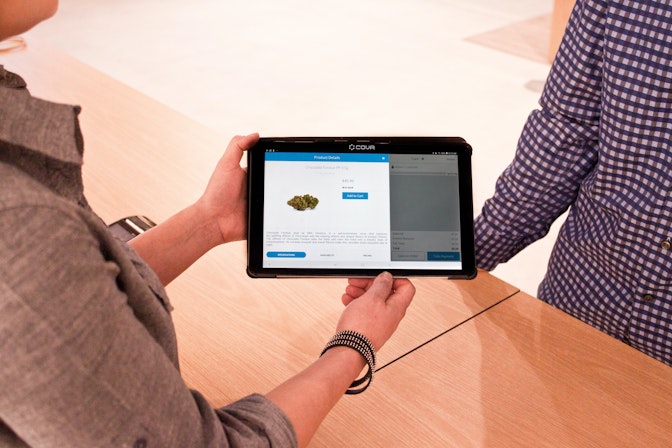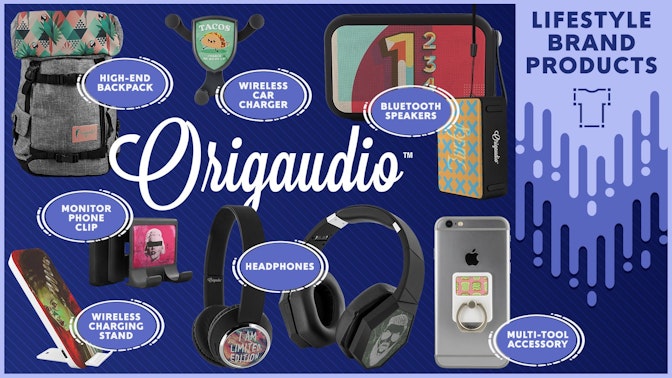Marketplace websites continue to attract ecommerce merchants from all corners of the globe. After all, there’s no better way to gain access to a broad, active audience than by selling through these sites. But while there are benefits to selling online via marketplaces, it’s important to consider factors such as transaction fees and commission to choose the best platform for you.
Below, we’ll walk you through some of the best marketplace websites you can consider for growing your business. You’ll get to choose from a good mix, including marketplaces focused on specific niches like furniture and tech.



Top online selling sites and marketplaces
1. Amazon
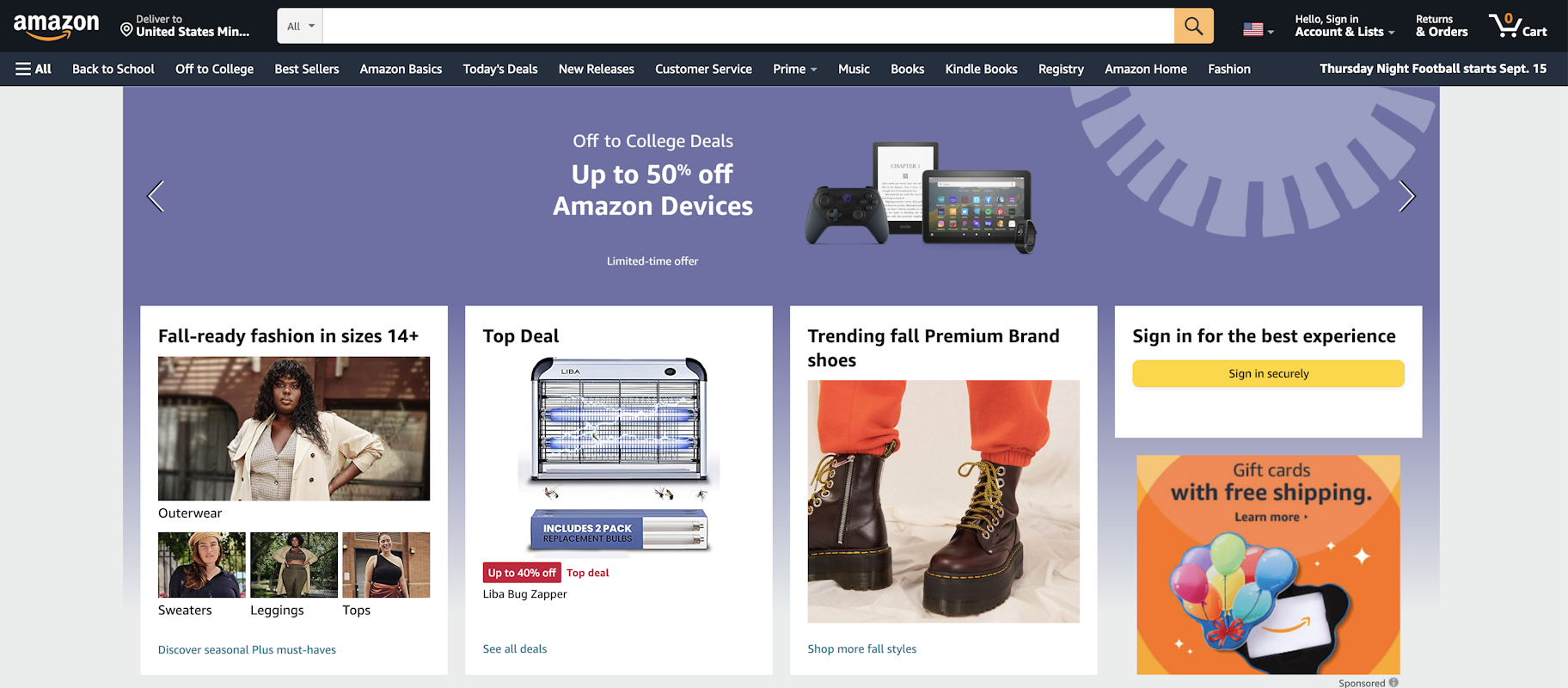
Unsurprisingly, Amazon takes the top spot due to its sheer volume of revenue and sales. It’s reported that the company sells over 400 products per minute, providing merchants with an active, high-intent audience to sell to.
→ Click Here to Launch Your Online Business with Shopify
Selling on Amazon requires you to sign up for an Individual or Professional plan. The Individual plan has no signup fees but requires you to pay 99¢ per item sold (plus the extra selling fees). The Professional plan, costing $39.99 per month, plus extra selling fees, is good if you want to sell more than 40 units per month and advertise your products.
Overall, Amazon is the best marketplace website to get your products in front of a broad, global audience.
2. eBay
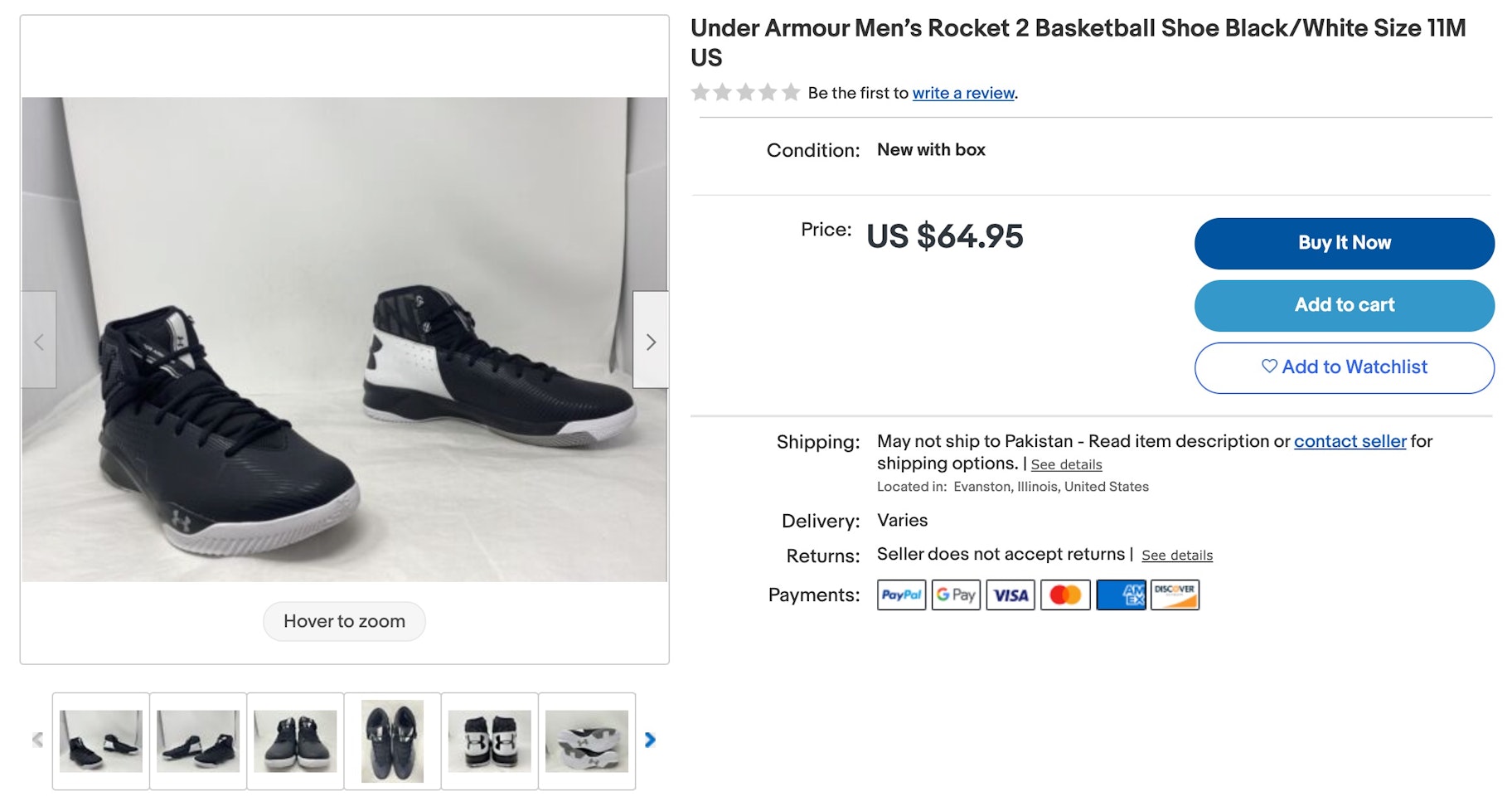
With approximately 187 million active users and a global presence, eBay remains one of the top places to sell any product online.
Sellers can offer almost anything to buyers on eBay, from shoes and clothing to bottles of air. You’ll need to design your own eBay page, create optimized listings to attract buyers, and regularly interact with customers to maintain a high seller rating. There’s a handy quick start guide for beginners who need help taking advantage of the platform.
eBay does have a couple of fees you need to be aware of. For instance, there’s a non-refundable listing fee for each product you want to sell. Moreover, you’ll have to pay a final value fee to eBay (ranging between 10% and 12% of the total sale). eBay also requires sellers to handle their own shipping and packaging requirements.
Further Reading: How to Sell on eBay in 2023: From Listings to Sales
3. Swappa
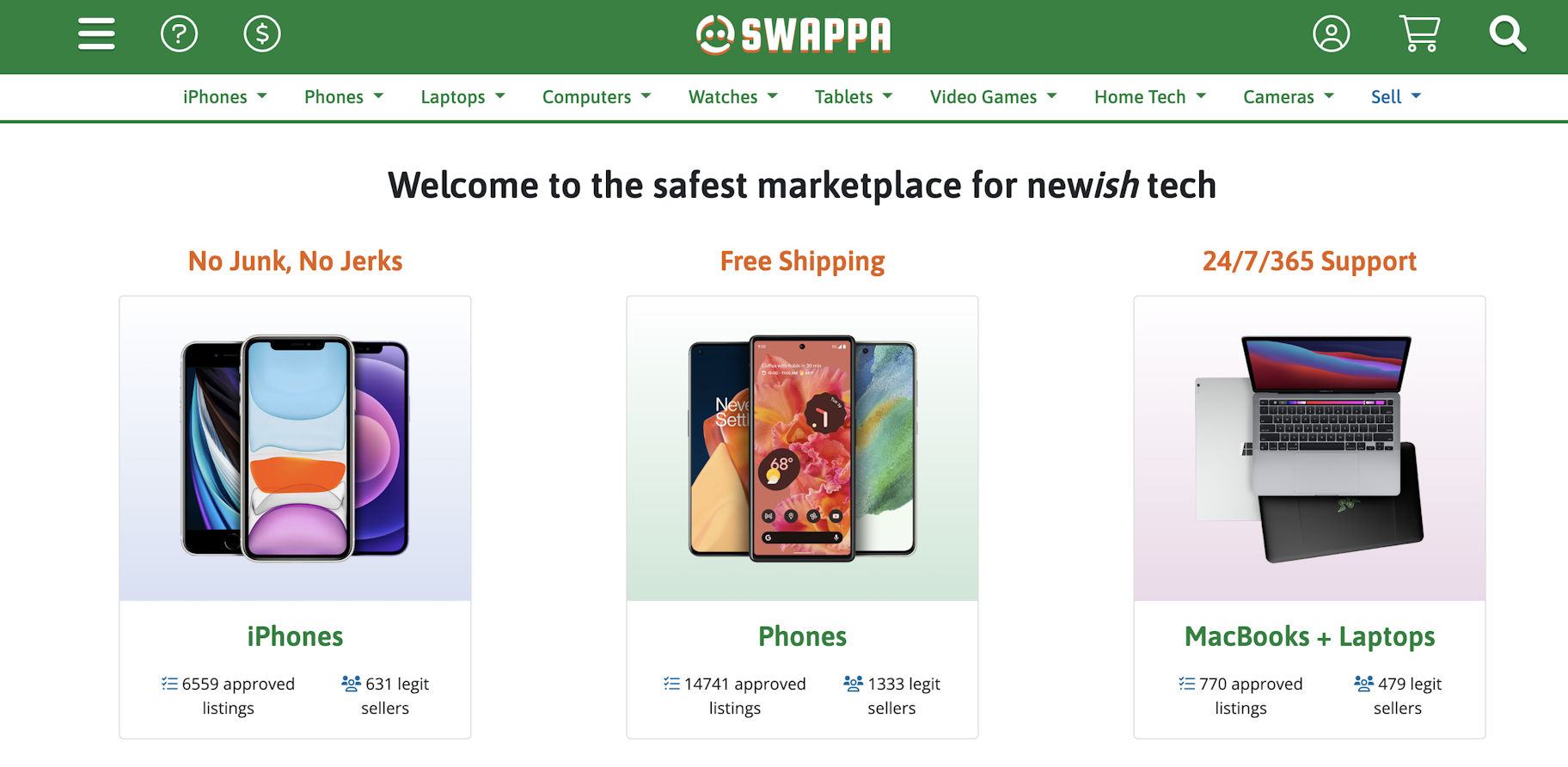
Got an old laptop you barely use? Or a gaming console that’s gathering dust in your loft? Turn your devices into cash on Swappa, an online marketplace for buying and selling all things tech.
People trust Swappa because it doesn’t accept junk, meaning anything you sell must be in good working condition. The company vets every item sold on its marketplace and allows customers to pay securely via PayPal.
You can list a product on Swappa for free, but you’ll need to pay a $5 fee if you want to have it featured (like an ad). Once the item sells, buyers and sellers each pay a small 3% fee. Swappa has some of the lowest fees around, so you’ll make more selling on its marketplace.
4. Chairish
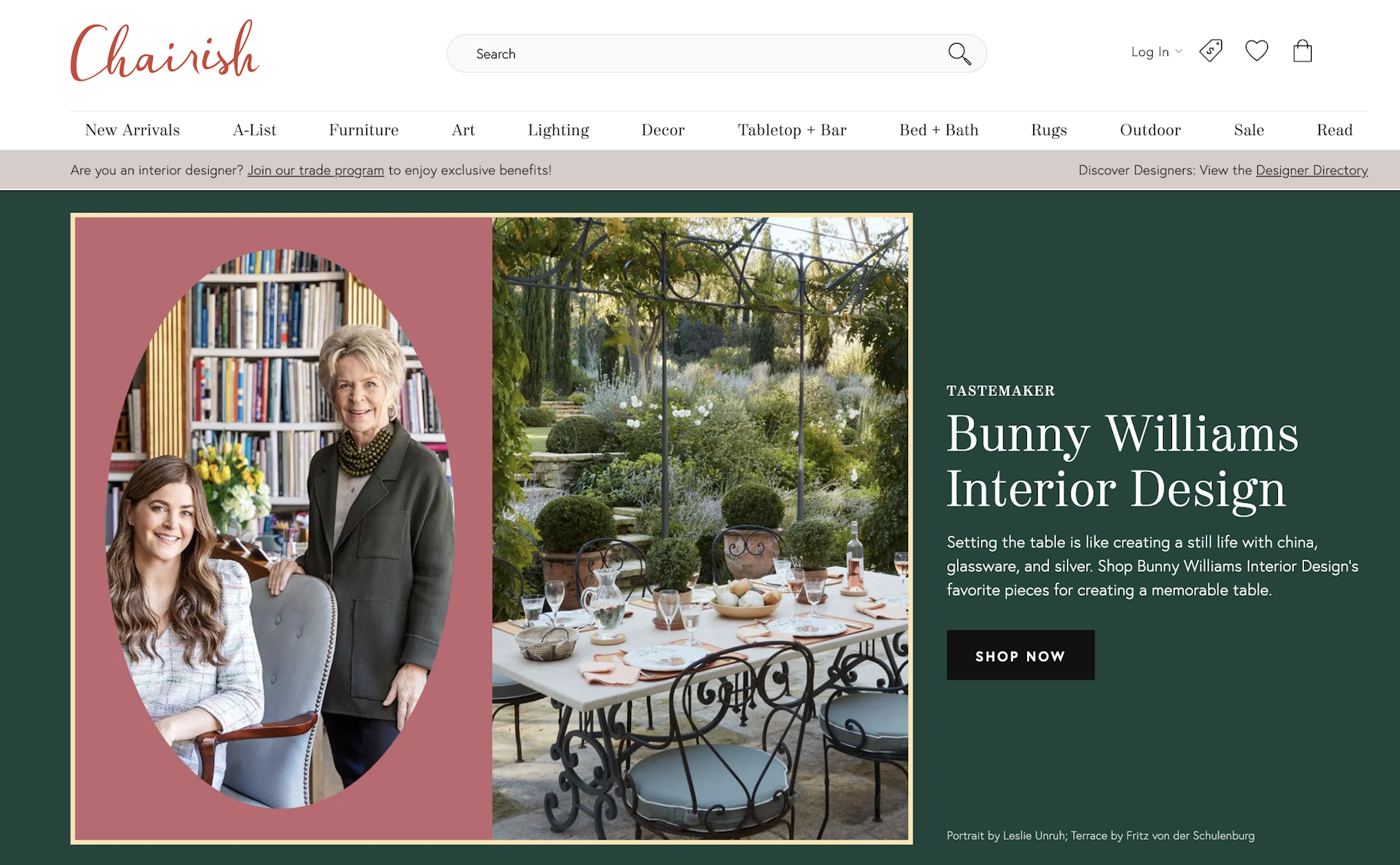
Chairish is a furniture-focused marketplace for companies and individuals selling high-quality home décor, accessories, lighting, art, and furniture. The website showcases trending products and new additions to customers, allowing them to purchase modern pieces for their homes.
It only takes a couple of minutes to list an item on Chairish. You can list your items for free, though around 20% to 30% of the sale price is given to Chairish as a commission. While you can use Chairish for free, an Elite plan is available for $149 per month. To join this plan, you’ll need to have all of your items approved by the Chairish curatorial team.
The team edits your photos, handles shipping and logistics on your behalf, and helps attract buyers on the Elite plan, so it could be worthwhile if you’re a high-volume furniture seller.
5. Ruby Lane
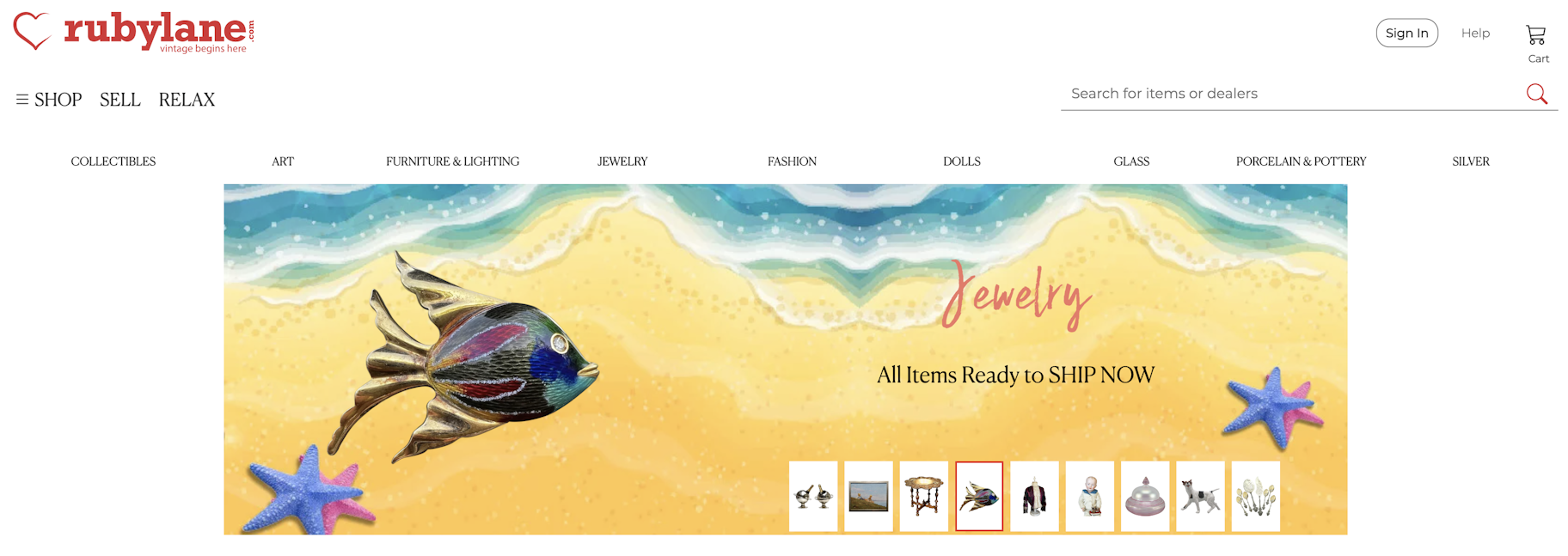
Ruby Lane is a more recent addition to the world of marketplace websites. The platform competes primarily with Etsy, connecting merchants with buyers of unique and vintage items.
Ruby Lane has a “collector’s hotspot,” where it advertises top-selling products from different categories like jewelry, furniture, fashion, and art. The company allows sellers to attach their sales to specific categories and upload various pictures of each item.
Fees for Ruby Lane sellers are quite straightforward. You’ll be able to list your products for free, but you’ll need to pay a monthly maintenance fee, which varies depending on the number of items you list. Ruby Lane charges no monthly fee if a seller lists a minimum of 15 items per month. However, there’s a 9.9% service fee on every sale you make.
6. Poshmark
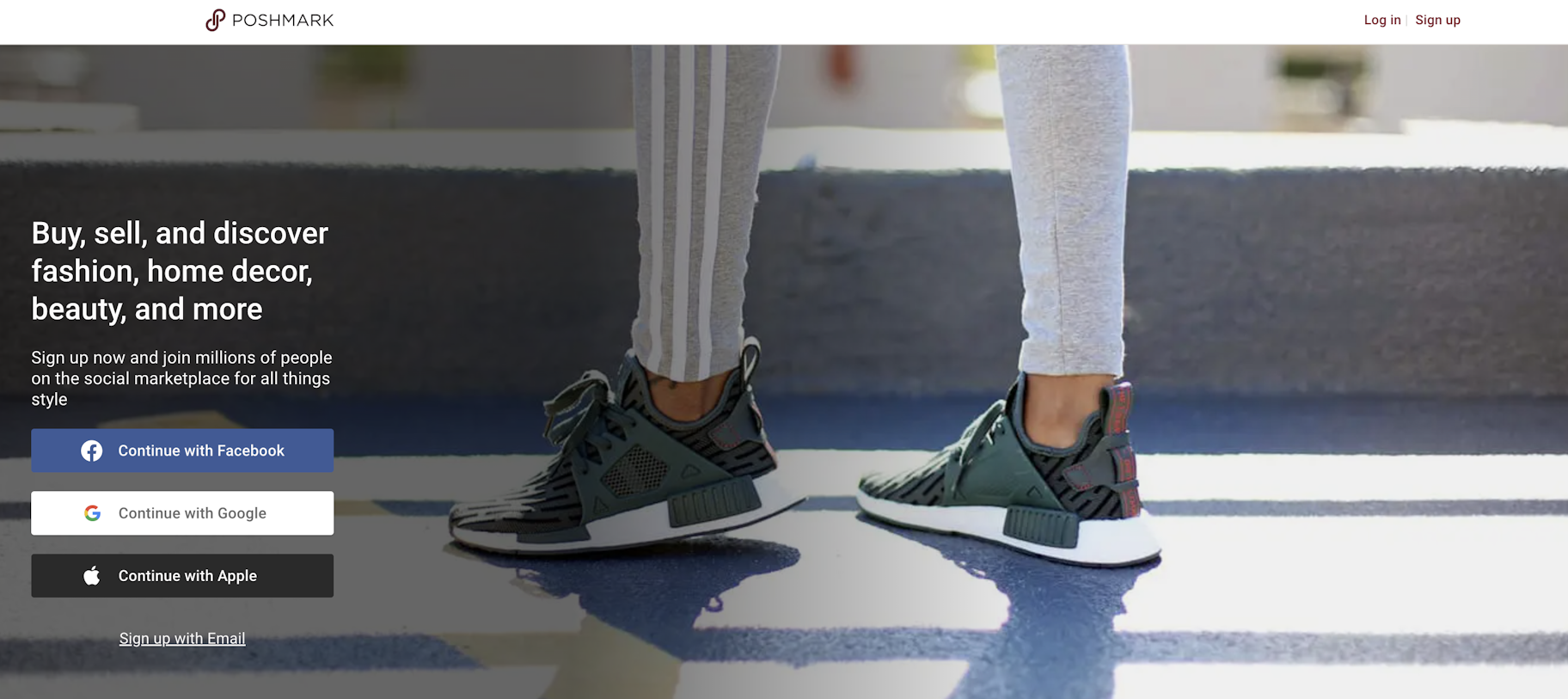
First introduced in 2011, Poshmark is a social commerce marketplace where users across the US, Canada, and Australia can purchase and list lifestyle products for sale. The categories on Poshmark include clothing, home décor, beauty products, and more. You can even list your items by brand or create sales collections.
Poshmark is popular among buyers and sellers thanks to its transparent pricing and excellent customer service. The company takes a flat commission of $2.95 from every sale under $15. If you sell products for more than $15, you’ll keep 80% of the sale price, while the rest goes to Poshmark in a commission.
With more than 80 million registered users worldwide, Poshmark is excellent for finding new customers.
7. Decluttr
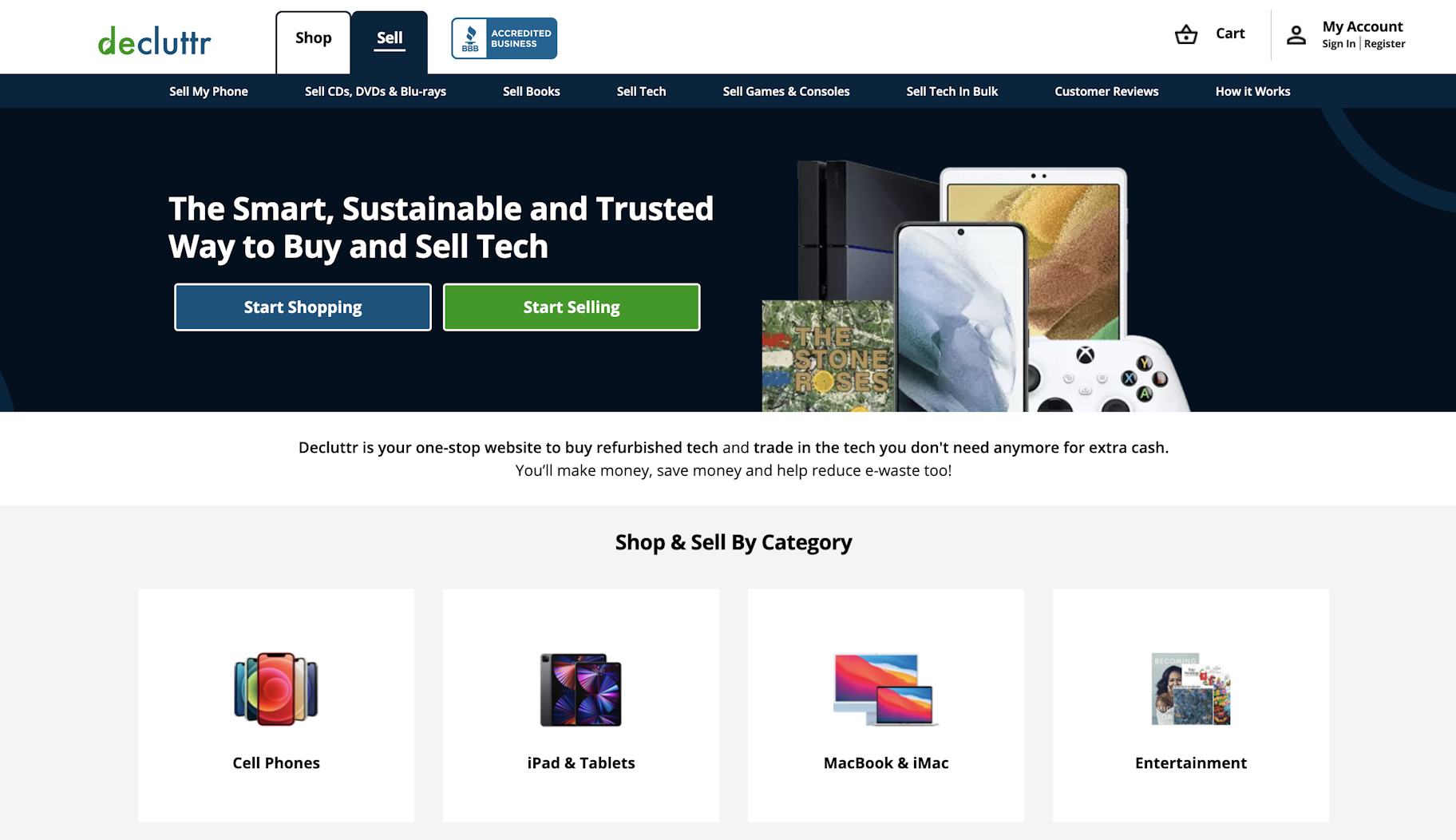
Decluttr is a platform where merchants can sell various tech, such as computers, CDs, iPods, tablets, and game consoles. The marketplace offers a great experience to customers, who can sort through products by category or brand.
Decluttr is slightly different from other marketplaces on this list. Instead of advertising your products to customers, you sell your items directly to Decluttr, and they market them to customers for their own profit. Using the company’s app, sellers can scan the bar codes of the items they want to sell and receive a fair price in return.
Decluttr handles all the shipping costs and pays you for your products as soon as they are received. If you want to avoid the headaches of marketing and logistics, Decluttr could be an excellent choice.
8. Wayfair
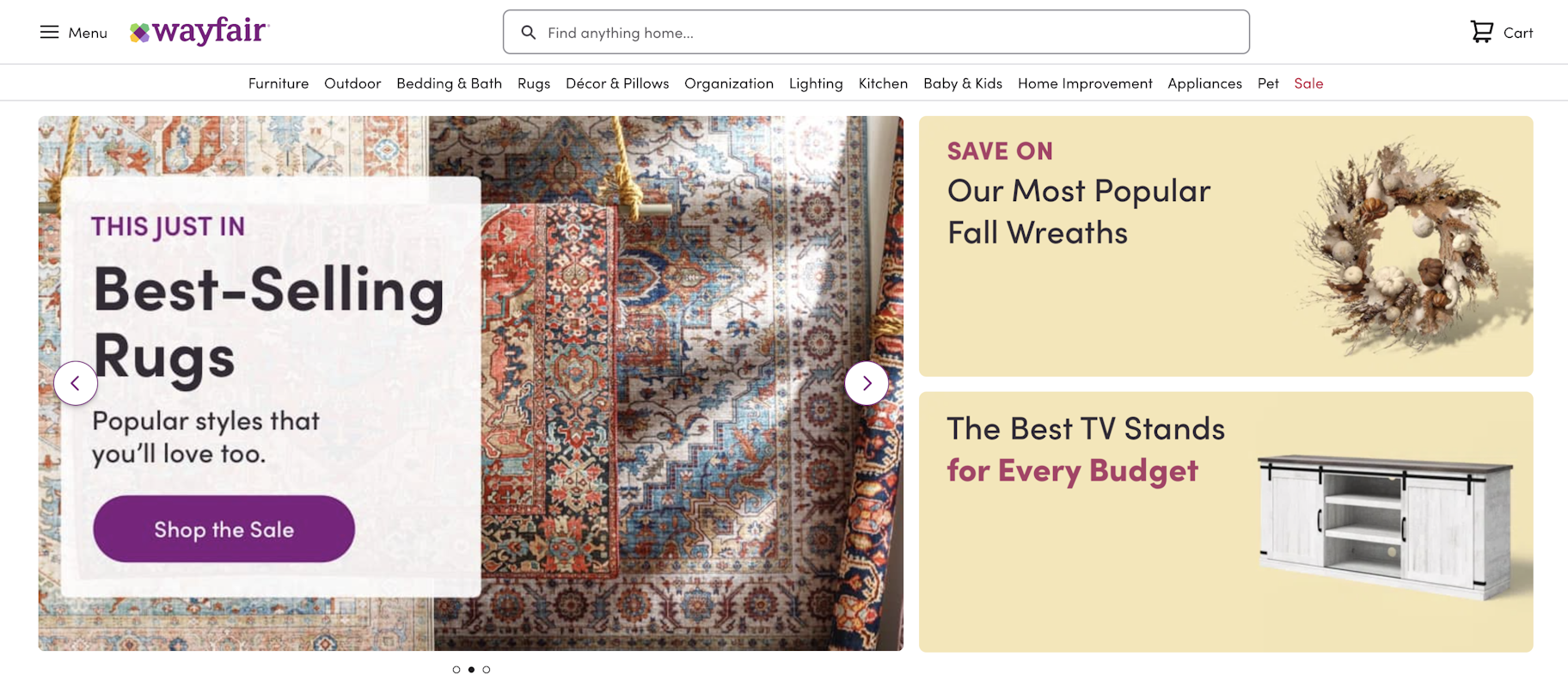
A market leader in furniture, home décor, and household items, Wayfair is a great place to sell all kinds of products. The company has over 11 million active users and boasts massive high checkout averages of around $230 per transaction.
For sellers, Wayfair offers a simple dropshipping model, where third-party sellers are listed as partners. When someone purchases an order on the Wayfair app or website, it’s forwarded to the seller’s warehouse, where they’ll be responsible for packing and shipping the order. However, Wayfair does handle shipping costs.
Wayfair doesn’t charge any fees or take a percentage of partner sales. Instead, the company pays all partners the wholesale cost of the items, then sets a higher price for customers. Wayfair also hosts its own sales events, like Way Day, which is its own version of Amazon’s Prime Day sales. It’s a good option for niche furniture items that might be too expensive to sell on other marketplaces.
9. Facebook Marketplace
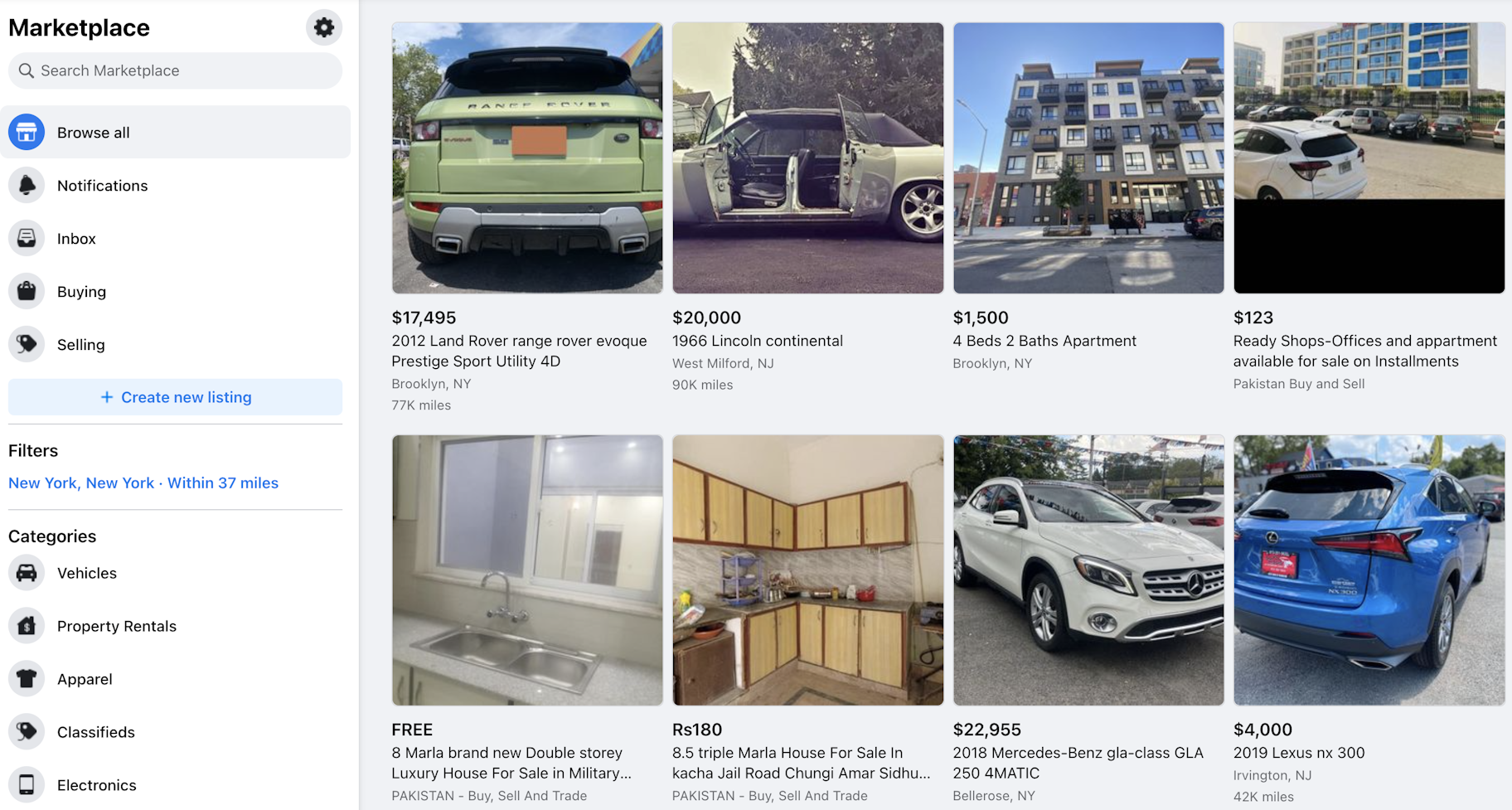
Facebook Marketplace is a section of Facebook where users come to discover, buy, and sell items. There are no listing fees on Marketplace, but there are certain guidelines you must follow when using the platform. Shopify merchants can sync their inventory, advertise products, and find new customers on Marketplace, courtesy of Facebook’s partnership with Shopify.
Marketplace offers a huge opportunity for sellers to reach an active audience. More than one in three people use the platform each month, meaning eyeballs are guaranteed when you list a product on Marketplace.
10. Offerup
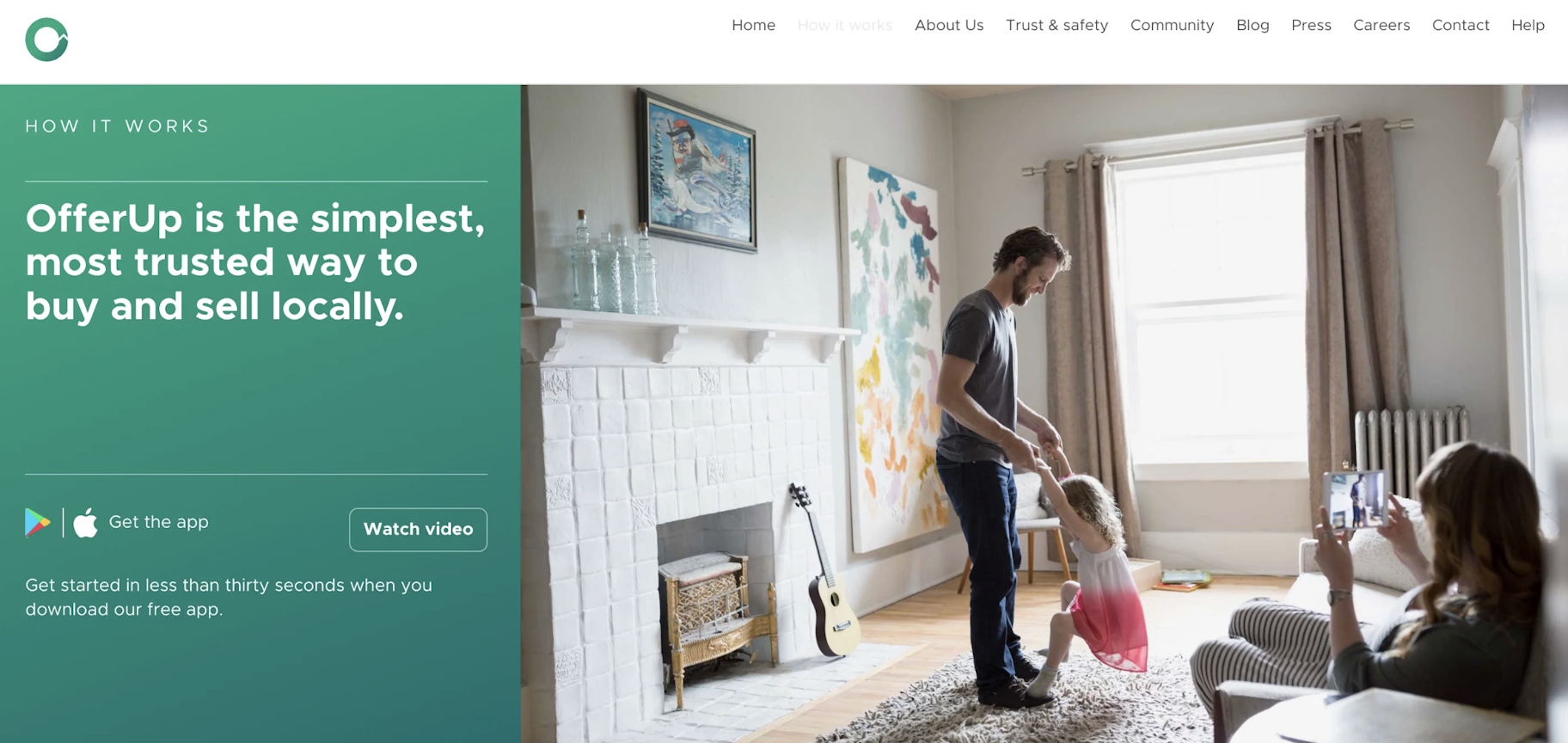
Offerup (formerly LetGo) lets shoppers quickly browse all sorts of products spanning fashion, electronics, and even automobiles, based on their ZIP code. Those interested can contact sellers through the Offerup app to decide a location to meet and negotiate price. If you’re looking to target people living close to you, Offerup can be a great choice.
Worried about your safety? Then you’ll be glad to learn that Offerup has remarkably strong safety procedures. Before you agree to meet up, you can browse individual profiles and read buyers’ reviews. Furthermore, Offerup recommends community meetup spots to make the transaction as easy and safe as possible.
Open shop on the best ecommerce marketplaces
Every ecommerce store owner should explore different marketplace websites, whether you’re selling custom products or running a dropshipping store. They often help new businesses get off the ground with great marketing opportunities and a built-in audience of active buyers. Use the above marketplaces as additional sales channels while using your own online store as a digital home base.
Marketplace websites FAQ
What are the best marketplace websites for ecommerce selling?
- Amazon
- eBay
- Swappa
- Chairish
- Ruby Lane
- Poshmark
- Decluttr
- Wayfair
- Facebook Marketplace
- Offerup
What is the best marketplace to sell stuff locally?
- Facebook Marketplace
- Offerup
- Decluttr
- eBay
- Poshmark





